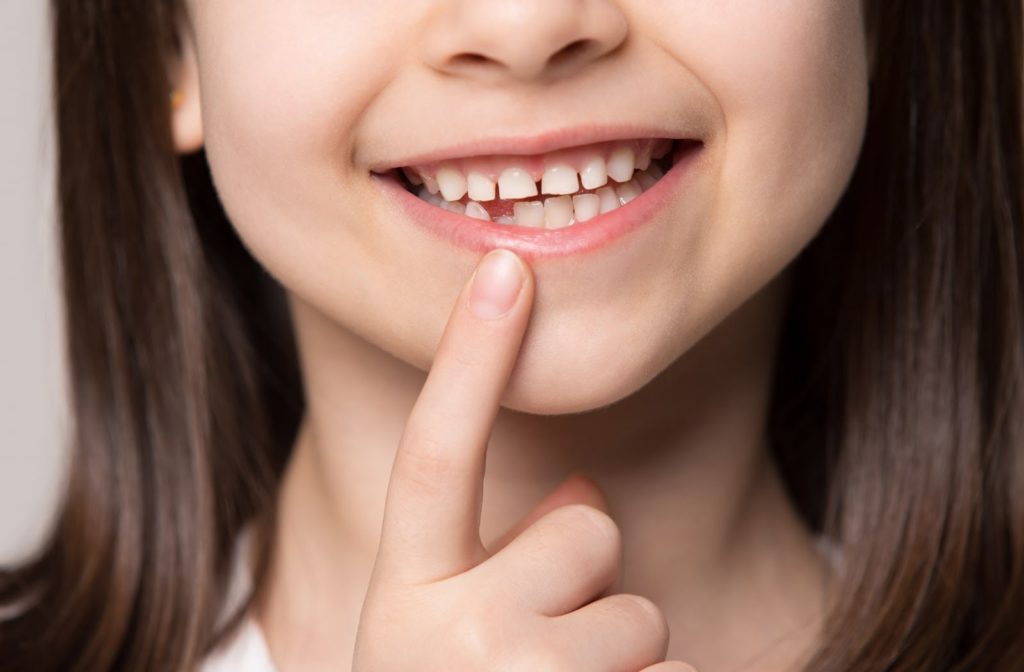Your child’s oral health is important, and several problems may develop as they grow older if it is not properly maintained. If your child is having issues with their teeth they may not think anything is wrong.
What problems should you know to look out for in case a visit to the dentist is needed? Keep reading to learn more about seven children’s teeth problems you should watch for.
Tooth Decay
Tooth decay, better known as cavities is one of the most common oral problems. Approximately 20% of children age five to 11 have at least one untreated decayed tooth. Cavities are permanently damaged areas in the tooth that become tiny holes.
They can be caused by several factors including:
- Bacteria
- Frequent snacking
- Sugary drinks
- Poor oral hygiene
Cavities become worse if they are not treated, and they can affect the deeper layers of your child’s teeth. Signs of a deeper infection to watch out for include:
- Toothache
- Tooth sensitivity
- Visible holes in the teeth
- Pain when biting down
You can prevent cavities with regular dental visits and good brushing and flossing habits. Ensure your child is brushing and flossing their teeth daily.
Sensitive Teeth
Many children can have sensitive teeth, and hot or cold foods and drinks can irritate the condition. Sometimes, even cold or hot air can cause them discomfort.
Children’s enamel is thin and may be easily worn down by plaque, and when enamels wear away, gums may recede. This can cause cracks to develop, exposing the nerve endings of their tooth.
If your child experiences pain or discomfort when eating or drinking hot, cold, sweet, or acidic products, visit your dentist. There are several different treatment options for your child, but in the meantime, avoid any trigger food or drinks and do not let your child brush their teeth too hard.
Thumb Sucking
Thumb sucking can help your baby relax, but allowing this habit to continue further into childhood can affect your child’s teeth. When they turn two or three, your child likely has less need to suck their thumb, but if they do, a pacifier is the best option as you can control when and how it is used.
If your child continues this behaviour after their permanent teeth have begun developing, it can cause problems with how they grow in. It is best to have your child not be sucking their thumb by the age of two, and you can encourage them to stop through positive reinforcement. Gentle reminders to stop this action can be helpful as well.
Gum Disease
Gum disease is the inflammation of the gum tissue and is often caused by poor dental hygiene and plaque build-up. When tartar and plaque develop at the base of your child’s teeth, they can affect the gums causing swelling and redness. You may also notice bad breath and bleeding gums.
Gum disease can come in three different forms:
If the infection spreads, your dentist may recommend antibiotics or other medications. However, gum disease is preventable when you ensure your child’s proper oral hygiene. Remember to have them brush and floss their teeth daily, and schedule regular visits with your dentist.
Teeth Grinding
Teeth grinding (also known as bruxism) is a condition where your child unconsciously grinds or clenches their teeth.
Mild bruxism may not require treatment, but frequent teeth grinding can lead to headaches, jaw disorders, and damaged teeth. Your child may not know they grind their teeth, so it is important to look out for possible symptoms of bruxism, including:
- Dull headaches
- Noticeable teeth grinding or clenching
- Tooth pain or sensitivity
- Jaw, neck, or face soreness
- Flattened, fractured, or chipped teeth
Over-Retained Primary Teeth
At times, one of your child’s baby teeth may not fall out, and there can be potential issues if these baby (or primary) teeth do not come out. Your child’s permanent tooth may attempt to erupt from the same area and cause two teeth to exist in a single space.
Sometimes, over-retained teeth can indicate an oral issue, most commonly the absence of permanent teeth in these areas. Other issues include root obstructions, misalignment, trauma, and infection.
If your child has over-retained teeth, visit your dentist and they can diagnose the issue. Treatment may include removing the primary teeth so the permanent teeth can develop effectively.

Baby Teeth Loss
Typically, primary teeth begin to be replaced at age six and your child will have all of their permanent teeth by the age of 13. Primary teeth become loose and fall out, but there can be complications such as baby teeth not coming out, causing pain, or being knocked out early.
If any of the above happens, consult your dentist. If a loose tooth is causing your child pain, your dentist can diagnose any potential problems. If a tooth has been lost due to injury before it is ready to come out, the developing permanent tooth may have issues or become misaligned. If your child loses a primary tooth prematurely, visit your dentist and they can work to ensure your child’s permanent tooth develops properly.
Your child’s teeth are developing and prone to different problems if proper oral hygiene is not followed. Ensure your child is brushing and flossing their teeth, and have regularly scheduled dental visits.
Protect Your Child’s Oral Health
Your child’s oral health is important, but they may not know to tell you if something is wrong. Keep an eye out for any symptoms or signs of a problem, and contact your dentist if they are feeling any discomfort.







